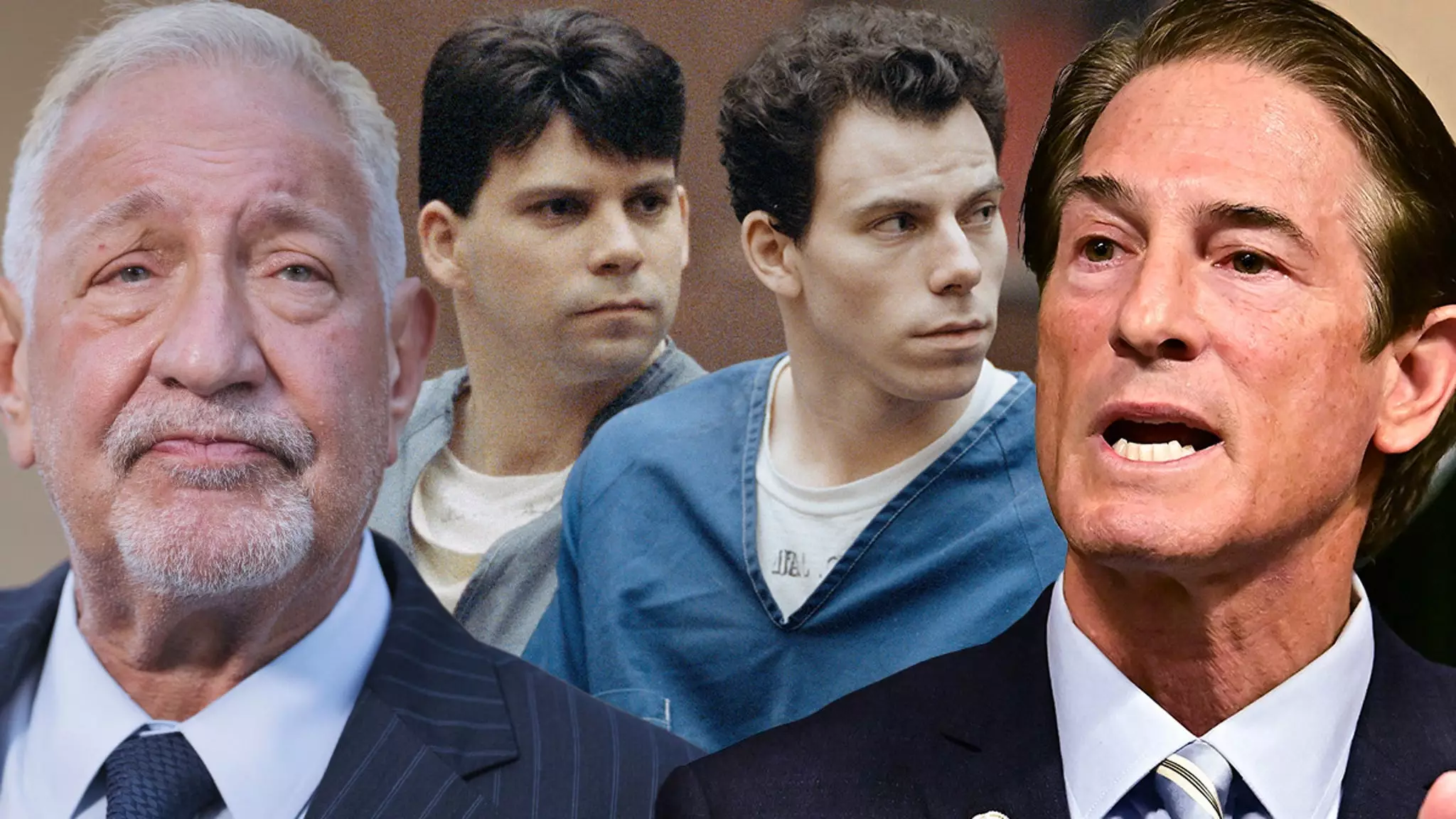The legal saga surrounding Erik and Lyle Menendez continues to unravel, placing Los Angeles County District Attorney Nathan Hochman under a glaring spotlight. Recently, Hochman firmly stated that he will not recuse himself from the high-profile case, notwithstanding increasing pressure from the defense attorneys representing the Menendez brothers. This decision has sparked heated debates and accusations of misconduct that might jeopardize the entire legal proceedings. Critics argue that Hochman’s enduring ties to the case, fostered by his shared upbringing in Beverly Hills and his attendance at the same high school as the Menendez brothers, casts a shadow over his objectivity. Hochman’s assertions of impartiality come off as defiant, portraying a refusal to engage with the complexities of past trauma. This crucial element of the case raises troubling ethical questions about the emotional readiness of prosecutors involved in cases marked by such deeply-rooted familial agony.
The Defense’s Outcry: Desperation or Justifiable Concern?
The attorneys for Erik and Lyle, particularly Mark Geragos, assert that Hochman’s presence in the courtroom is inherently problematic, not just for the Menendez family but for the legal framework surrounding victims’ rights. Geragos’ recent call for Hochman to step aside hinges on allegations that the DA’s actions are causing undue distress, which detracts from the core focus of the case—resentencing. The defense claims that Hochman’s decision to present emotionally provoking evidence, such as crime scene photos, violates Marsy’s Law, which was designed to protect the rights of victims. While some may view this as a strategic legal maneuver, it is imperative to recognize that emotional trauma is not merely an abstract concept in such cases; it has tangible mental health repercussions, especially for an elderly victim.
Bryan Freedman, another attorney representing the Menendez family, sharply criticized Hochman, suggesting that the DA is neglecting his responsibilities to focus on issues that genuinely affect the communities he serves. Freedman argues that Hochman’s fixation on the Menendez case distracts from significant criminal behavior across Los Angeles, ranging from rampant burglaries to brazen smash-and-grab incidents. By portraying Hochman as out of touch with reality, this critique raises broader concerns about the priorities of public officials in a city grappling with rising crime rates.
The Context of the Menendez Case: A Story of Pain and Redemption
At the center of this legal turmoil is a haunting narrative of childhood abuse, which the Menendez brothers claim shaped their violent actions against their parents. The chilling nature of their conviction—murdering their parents with shotguns in their Beverly Hills home back in 1989—serves as a backdrop to a story that is both haunting and compelling. The societal framework’s treatment of childhood trauma remains pivotal, questioning whether justice is truly served when emotional pain is dismissed in legal settings.
As Erik and Lyle navigate this complex landscape, they have voiced aspirations for rehabilitation and eventual release, hoping that their pursuit of resentencing and clemency might finally give them a pathway out of life without parole. The upcoming hearing, wherein a risk assessment will be examined, is another critical juncture in this lengthy saga. This assessment, ordered by Governor Gavin Newsom, promises to delve into the brothers’ rehabilitation efforts, presenting a compelling case for a reconsideration of their sentence.
The Enigma of Public Perception: Media and Morality
There is no denying that media coverage of the Menendez case has played a substantial role in shaping public perception. Hochman’s decision to maintain his role amid controversy underscores an intrinsic relationship between legal proceedings and media scrutiny. Often, legal professionals may forego ethical considerations for media visibility, placing them in morally ambiguous positions. Freedman’s remarks not only echo the frustrations of the Menendez family but warrant a deeper examination of how public figures navigate the complexities of personal narratives while being scrutinized under relentless media lights.
As the upcoming court hearing approaches, the intersection of personal history, public role, and the perennial quest for justice looms large over the case. The path forward remains murky, with both sides wrestling for control over a narrative that is as complicated as it is tragic. The tension between seeking justice and grappling with deeper societal issues continues to unfold, demanding attention not only from legal authorities but also from a public eager for accountability and understanding in a world rife with merciless scrutiny. The Menendez brothers’ story is one that pushes to the forefront conversations about mental health, trauma, and the retribution-versus-restoration debate in our judicial systems.

